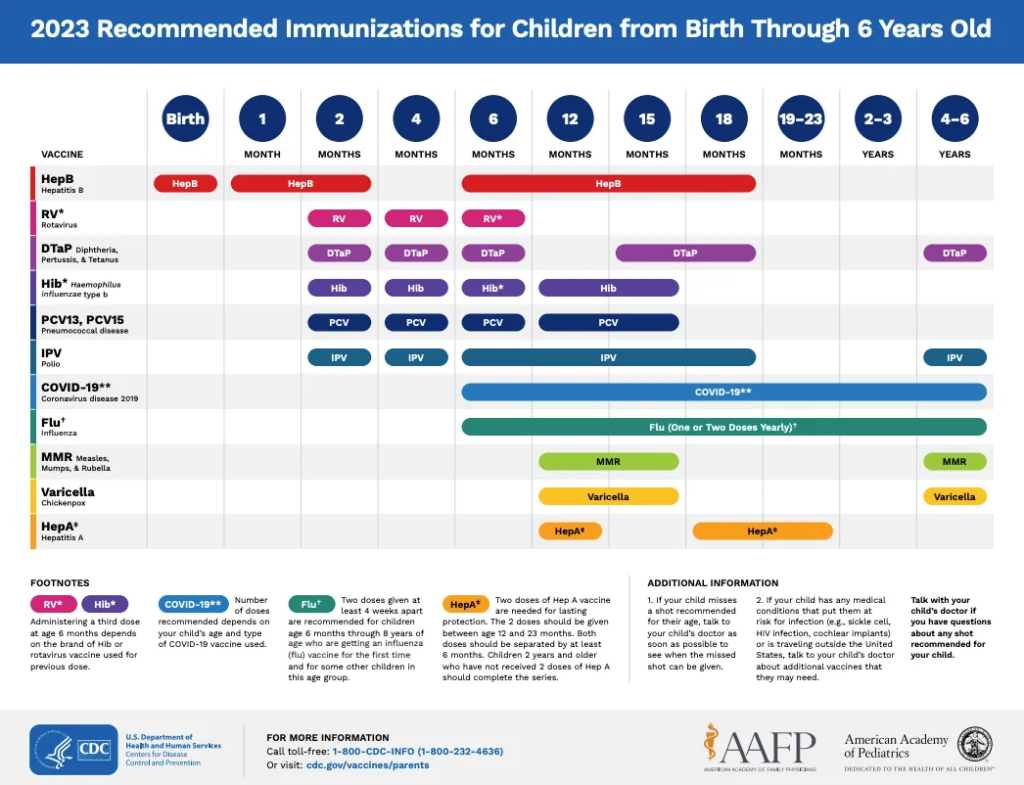I get asked a lot of questions about medicine, health, vaccines, and similar things by many people. Sometimes people seem embarrassed or even somewhat apologetic when they ask these things. But really, I appreciate it when people take the time to ask questions. It is great knowing that people want to be informed, and helping with that is one of my roles as a scientist and public health professional. I encourage everyone to ask questions. Many times people are not necessarily opposed to doing something to protect their health (like getting a vaccine), but they might not have taken that action yet because there is something they aren’t sure about or there is something they need clarified. That is something I completely understand; when in doubt, sometimes it feels like the safest thing to do is — nothing. However, it is important to ask a trusted source for the information you need so that you can take action, and feel confident in the health choices you are making. And that is where I come in!
I get a lot of similar questions from people, which tells me that there are areas related to health and science that are 1.) important to a lot of people, and 2.) obviously unclear (although I already knew both of those!). And I know it can be difficult to speak up and ask questions about anything, even if it’s something you really want to know. So, with that in mind, I thought I would tell you about some questions that I get a lot, in case you might have the same ones. This will likely be the first of several of these posts, and please feel free to send in messages to my Facebook page with other questions you would like to have answered. If you don’t ask, you will never know. So, here are just a few common questions I hear about vaccines and immunity.
What is “natural” immunity?
Natural immunity is the type of immunity a person has after they have a disease. For example, the chickenpox vaccine was not yet available in the U.S. when I was a child in the early 1990’s. As a very contagious disease, it was very common for children to catch and spread chickenpox (my little sister very generously gave it to me). But if you got chickenpox, one of the “bright sides” was that you were very unlikely to ever have it again because you had developed natural immunity to the disease. This was because, when you had chickenpox, your body’s immune system made antibodies to fight the disease, giving you immunity. So, if you came in contact with chickenpox in the future, your immune system would recognize it and be able to quickly make the antibodies to fight it off. This kind of immunity is called natural, meaning it is not gained through vaccination.
Is natural immunity safer than immunity from a vaccine?
NO. To gain natural immunity, someone has to actually be infected with the disease. Diseases can be painful, serious, and even deadly. They also often have many side effects that can be dangerous. When a person gets sick with a disease, no one knows how their body will respond or how seriously the disease will affect them. Getting immunity from a disease can be risky and unpredictable, and you have to experience the disease. It is what I tend to think of as doing something, “the hard way.”
Immunity from a vaccine (also called vaccine-acquired immunity) is a much safer way to gain immunity from a disease. With vaccination, a dead or very weak form of the disease is introduced into your body. Your immune system learns to produce antibodies to protect you, but you do not have to experience the risks of actually having the disease, like with natural immunity. The most recent scientific studies show that vaccination has more benefits and far fewer risks than natural immunity.
What is “herd immunity” (and won’t that protect me enough?)?
This term became more well-known (or at least more used) when COVID-19 vaccinations became available but many people were hesitant to be vaccinated. Herd immunity (also called “community immunity”) means that enough people in an area have become immune to a certain disease that it is very difficult for the disease to spread. One of the main benefits of herd immunity is that it helps protects people who are not able to vaccinated, like the very young or people with immune system issues. In this situation, the more people who have immunity, the more difficult it is for a disease to spread.
As you have probably already guessed, the answer to the second part of this question — won’t herd immunity provide enough protection — is no. Reaching the level of herd immunity in a population can be very difficult, especially if the disease is especially contagious, or if it is a disease (like a virus) that can mutate into new variants. The best way to make sure you have immunity is by getting vaccinated. By doing this, you can protect yourself, and you can contribute to herd immunity which may protect others, too.
Other Questions?
Feel free to message my Facebook page with your own questions. I will answer everything I can, and if I don’t know the answer, I will find someone who does. Asking questions is how we learn, and how we make informed decisions. Everyone should be able to get the information they need to decide what is best for their health. I am here to help make that connection, and I look forward to being a resource that you can trust.
Be Well; Be Kind,
Dr. Casey
Want to Learn More?
If you are interested in reading more about different types of immunity and how they work, the Centers for Disease Control and Prevention (CDC) has some great information here: https://www.cdc.gov/vaccines/vac-gen/immunity-types.htm
If you would like to learn more about herd immunity, National Geographic has a great article discussing it here: https://education.nationalgeographic.org/resource/herd-immunity-strength-numbers/
— —
About Dr. Casey
Dr. Casey, PhD, MPH, is Director of Epidemiology and Public Health and associate professor of family medicine at the University of South Alabama Whiddon College of Medicine with a concurrent appointment in USA Health Mitchell Cancer Institute’s Division of Cancer Control and Prevention; she is also Director of the Masters of Public Health Program at Spring Hill College. Dr. Casey holds a masters and doctoral degrees in Public Health from the University of Alabama at Birmingham and a postdoctoral fellowship at Harvard T.H. Chan School of Public Health.
Her research interests include behavioral epidemiology, childhood/adolescent vaccination, cancer prevention, health communication, and reducing health disparities, emphasizing rural settings. Dr. Casey is a staunch advocate for increasing vaccination to lower rates of preventable diseases; she has led several studies to improve vaccine uptake.
Dr. Casey has held top leadership roles with non-profit organizations such as VAX2STOP CANCER, was elected Chair of Alabama’s Cancer Control Coalition, and is on the executive committee of Alabama’s vaccination task force. She is active in many prominent organizations, including the American Public Health Association and Society of Behavioral Medicine. With over 50 scientific publications and numerous national presentations, and invited talks, Dr. Casey is a widely respected expert in the field of vaccination.


